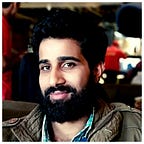4 Books to MASTER Python
Learning Python is a valuable skill for anyone interested in pursuing a career in technology or simply wanting to improve their problem-solving skills. It is a versatile language that can be used for a wide range of purposes, from web development and data analysis to artificial intelligence and scientific computing.
Many resources are available for learning Python, including online courses, tutorials, and books. In this blog post, we will focus on four books that can and will help you, master Python. These books cover a range of skill levels and topics, so you can choose the one that best fits your needs and goals.
Whether you are a beginner looking to get started with Python or an experienced programmer looking to expand your skills, these books can provide a solid foundation in Python programming and help you become proficient in the language. So, let’s take a look at these four books in more detail.
“Learning Python” by Mark Lutz
“Learning Python” by Mark Lutz is a comprehensive guide to Python programming, covering both the basics and more advanced topics. It is suitable for beginners and experienced programmers alike.
The book begins with a thorough introduction to the Python language, including its syntax, data types, and control structures. It then moves on to more advanced topics, such as object-oriented programming, data wrangling, and working with Python’s built-in modules and libraries.
One of the strengths of “Learning Python” is its clear and concise writing style, which makes it easy to follow along and understand the concepts being presented. The book also includes numerous examples and exercises to help you practice and solidify your understanding of the material.
Overall, “Learning Python” is an excellent resource for anyone looking to learn Python programming, whether they are just starting out or looking to deepen their understanding of the language.
“Python Crash Course” by Eric Matthes
This book is a fast-paced, thorough introduction to Python programming that is ideal for beginners. It covers all the essential concepts and includes exercises to help you practice and solidify your understanding.
The book begins with the basics of Python programming, including how to install and set up Python, how to work with variables, data types, and control structures, and how to write and run Python programs. It then moves on to more advanced topics, such as working with lists, dictionaries, and classes, and using modules and libraries.
One of the key features of the “Python Crash Course” is its focus on practical examples and hands-on exercises. The book includes numerous exercises and projects that allow you to apply what you’ve learned and build your skills as a Python programmer.
Overall, the “Python Crash Course” is a great resource for anyone looking to get started with Python programming. Its fast-paced, hands-on approach makes it easy to learn the essential concepts and start writing Python code
“Fluent Python” by Luciano Ramalho
This book is aimed at intermediate to advanced Python programmers and focuses on helping you become more fluent in Python. It covers a wide range of advanced topics, including data structures, concurrency, and meta-programming.
The book begins by exploring the Python data model and how it can be used to write expressive and efficient code. It then moves on to more advanced topics, such as writing object-oriented code, using generators and asynchronous programming, and working with data persistence and serialization.
One of the strengths of “Fluent Python” is its focus on helping you become a more effective and efficient Python programmer. It not only covers the technical details of advanced Python concepts but also provides guidance on how to apply them in real-world situations.
Overall, “Fluent Python” is a great resource for intermediate to advanced Python programmers looking to deepen their understanding of the language and become more proficient in their craft. It covers a wide range of advanced topics and provides practical guidance on how to apply them in real-world situations.
“Python Cookbook” by David Beazley and Brian K. Jones
This book is a collection of recipes for solving common Python programming problems. It is suitable for intermediate to advanced Python programmers and is a great resource for finding solutions to specific problems or learning about new Python techniques.
The book is organized into different chapters, each focusing on a specific area of Python programming. Some of the topics covered include data structures, algorithms, network and web programming, concurrency, and testing and debugging.
One of the key features of “Python Cookbook” is its focus on providing practical solutions to real-world problems. Each recipe in the book includes an example code and a detailed explanation of how to use it to solve a specific problem. This makes finding solutions to specific problems or learning about new Python techniques easy.
Overall, “Python Cookbook” is a great resource for intermediate to advanced Python programmers looking for solutions to specific problems or looking to learn about new Python techniques. Its practical, solution-focused approach makes it an invaluable resource for any Python programmer.
Final Words
Many excellent books are available to help you learn and master Python programming. The four books mentioned in this blog post are “Learning Python” by Mark Lutz, “Python Crash Course” by Eric Matthes, “Fluent Python” by Luciano Ramalho, and “Python Cookbook” by David Beazley and Brian K. Jones.
When choosing a Python book, it is important to consider your skill level and goals in learning Python. If you are a beginner, “Python Crash Course” or “Learning Python” would be good choices. If you are an intermediate or advanced Python programmer, “Fluent Python” or “Python Cookbook” would be more suitable. No matter which book you choose, you will be well on your way to mastering Python programming.
Finally, if you liked this post, give this a like and follow me on Twitter @shehzensidiq and also give try following me on Medium.
If you have any questions or queries, feel free to ask in the comments.
Thank you and Have a Nice Day.
